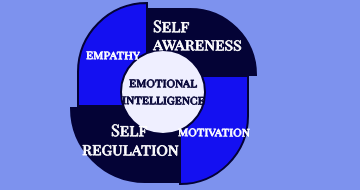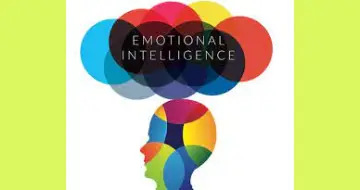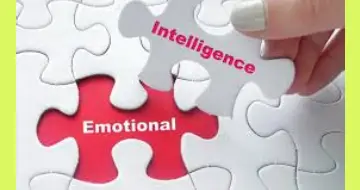IIRF Online > Personal Development > Personal Transformation > Emotional Intelligence > Collaboration with Emotional Intelligence
Collaboration with Emotional Intelligence by Udemy
Collaborating with Emotional Intelligence: Enhancing Team Dynamics | Building Relationships | Collaboration for Success
Course Highlights
- Determine why a collaborative approach is beneficial in teamwork
- Recognize why collaboration is underpinned with good emotional intelligence
- Evaluate ways to work with the principles and characteristics of collaboration - what works best, when and where
- Explain the various modes that can be used in collaboration
- Assess your own collaborative style and how this helps or hinders you in collaborative working
- Identify strategies and ideas about how to collaborate more effectively
- Manage work with multi-disciplinary teams at all levels within an organisation
- Explore how to use mindfulness techniques to run collaborative meetings more effectively
- Recognize how to use emotional intelligence to collaborate with others and build emotional bonds
Skills you will learn!
Curriculum
8 Topics
Introduction
Being Emotionally intelligent about this course on udemy
The learning outcomes of the course
Activity Booklet: Managing Collaboration
How Taking a Different View on Team Working can Make a Big Difference
Giving and receiving feedback in collaboration
Tips to Develop your Emotional Intelligence in Collaboration
Activity Booklet: Assess your Collaborative Competencies
12 Topics
The Role of Emotional Intelligence In Collaboration - Learning Outcomes
Defining Emotional Intelligence
What is the Difference Between EI and EQ?
FAQs about Emotional Intelligence
Attitude and Emotional Intelligence
The Difference Between Emotions and Feelings
Insights into Emotions
Emotions and Emotional Intelligence at Work
The Myth about Positive and Negative Emotions
How the Emotional Climate Influences Teams and Teamworking
Working with the Emotional Climate
Running Virtual Meeting with Emotional Intelligence
14 Topics
Introduction the working practice of collaboration
Why win-win collaboration is important
Emotional Intelligence and Win-Win Collaboration
Workplace Collaboration
Why Collaborate and When to Collaborate
The Principles and Characteristics of Collaboration
The 3 Levels of Collaboration
The Ground Rules for Collaboration
The Modes of Collaboration
The Advantages of Collaboration
The Disadvantages of Collaboration
An Overview of Some of Difficulties with Collaboration
Activity Booklet: Collaboration within your Organisation
Emotional Intelligence and Collaboration Quiz
8 Topics
Conflict and Trust in Collaboration - Factors and Questions to Consider
The Important Role of Trust
Trust and the Wheel of Emotions
The Trust Equation
Motivation and Trust
Building Trust using an Emotional Bank Account
Activity Booklet: Your Emotional Bank Account
Lightbulb Moments Resource Cards - Building Trust with Emotional Intelligence
15 Topics
The Four Behavioural Styles in Collaboration - Learning Outcomes
Activity Booklet: Assess your Behavioural Style
The Importance of Behavioural Flexibility
William Moulton Marston's Model of the Behavioural Expression of Emotions
The High dominance behavioural style
The High Influence Behavioural Style
The High Steadiness Behavioural Style
The High Compliance Behavioural Style
Poster: Emotional Intelligence; Collaboration and the Behavioural Styles
The Ideal Behaviours for Ideal Interactions with Each Behavioural Style
Booklet: Do's and Don'ts of each Behavioural Style
Activity Booklet: Behavioural Styles and Collaboration
Using Behavioural Styles to Build Collaborative Relationships
Behavioural Styles - Learning Review
Working with Behavioural Styles
4 Topics
Mindfulness and Collaboration
Mindful Meetings
Facilitating Collaborative Meetings Considering Preferences
Further Considerations around Running Collaborative Meetings Mindfully
2 Topics
Activity Booklet: Learning Review
Review of the Course on Collaboration and Emotional Intelligence
2 Topics
How to Access your Udemy Certificate
Bonus Lecture

Collaboration with Emotional Intelligence




.webp)

